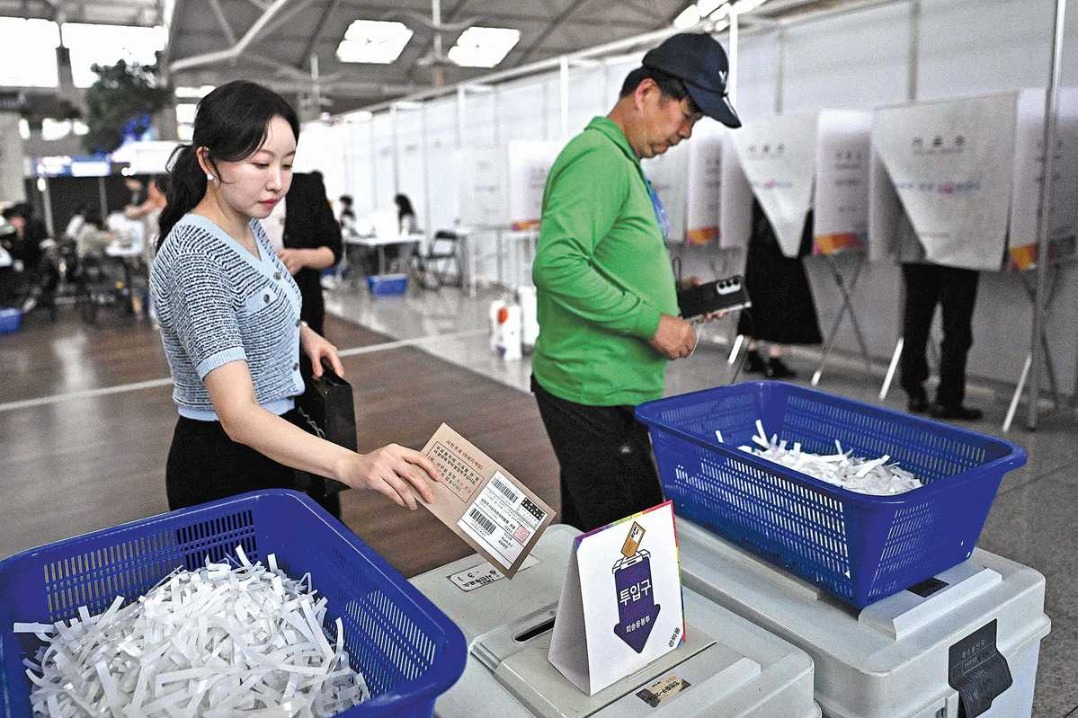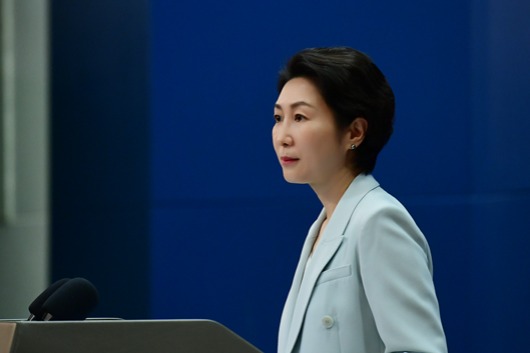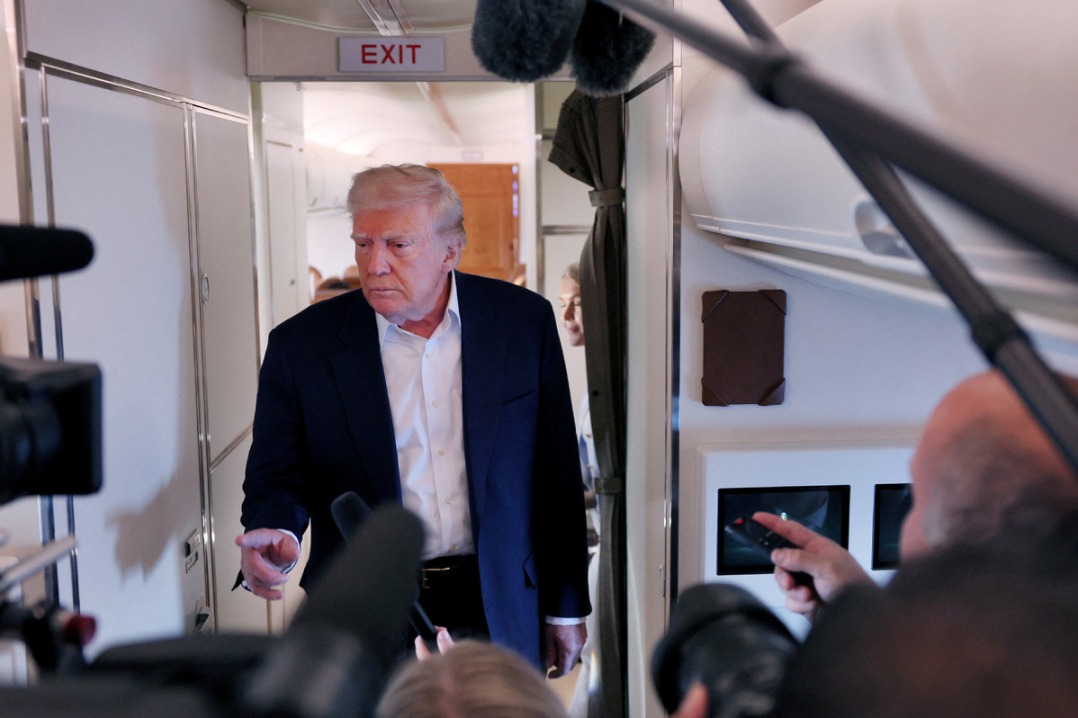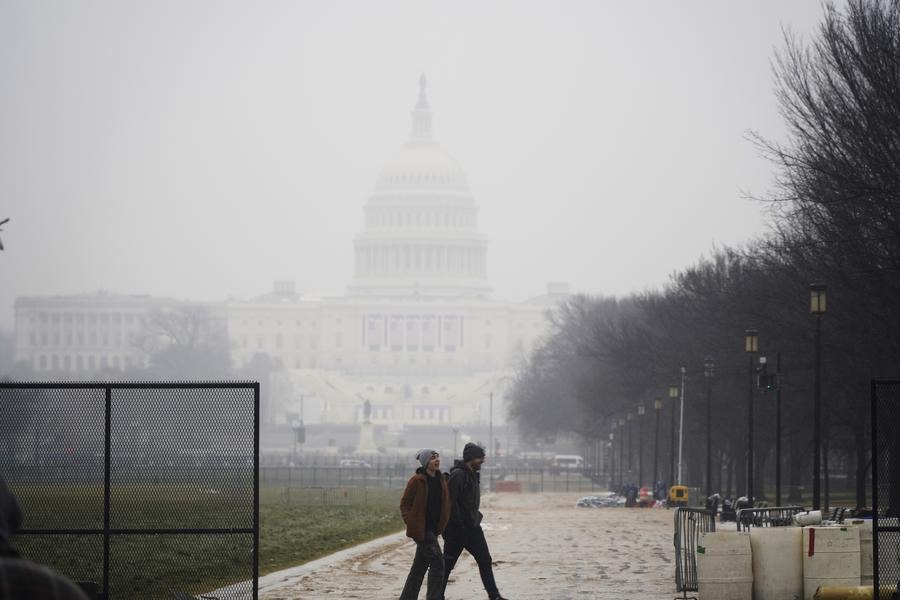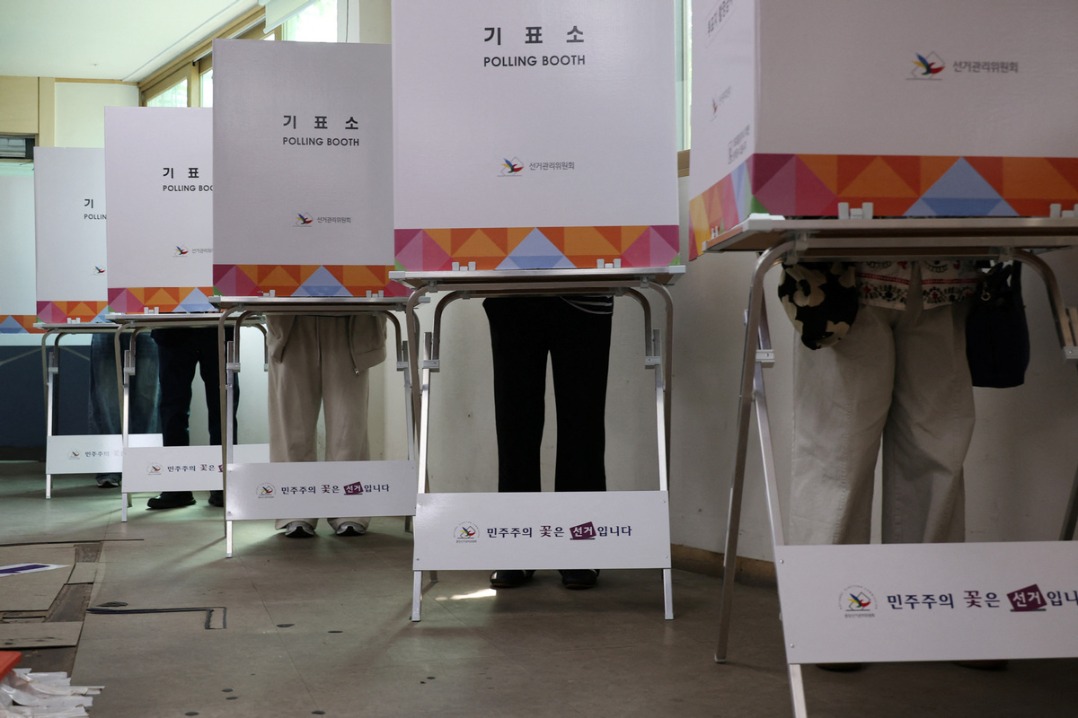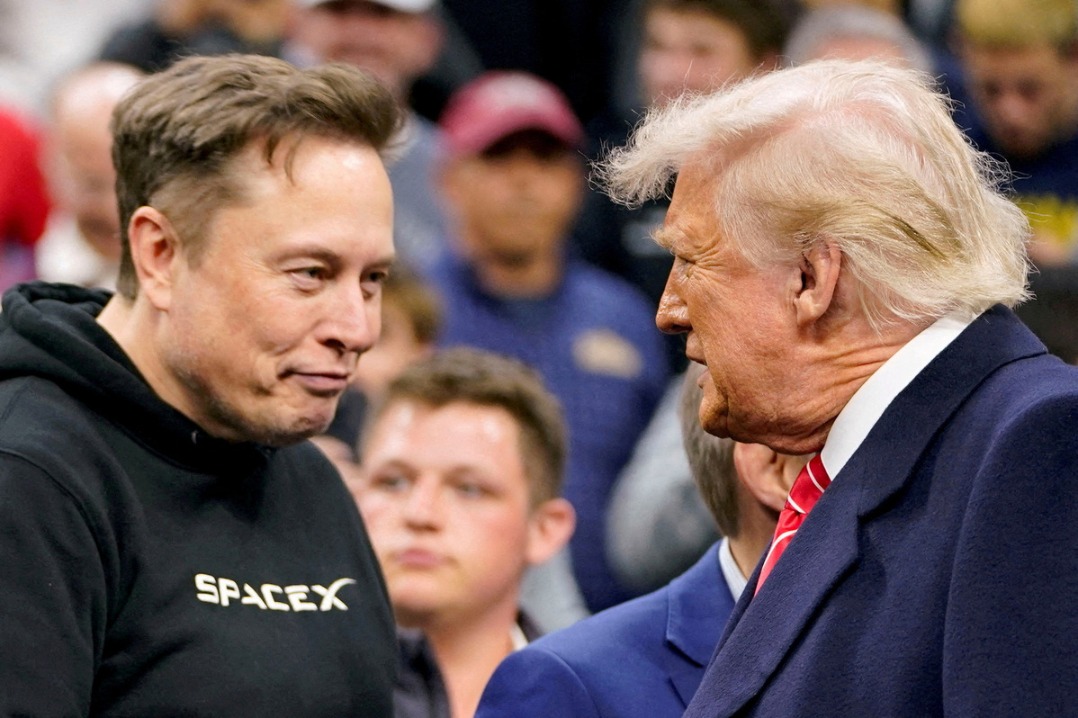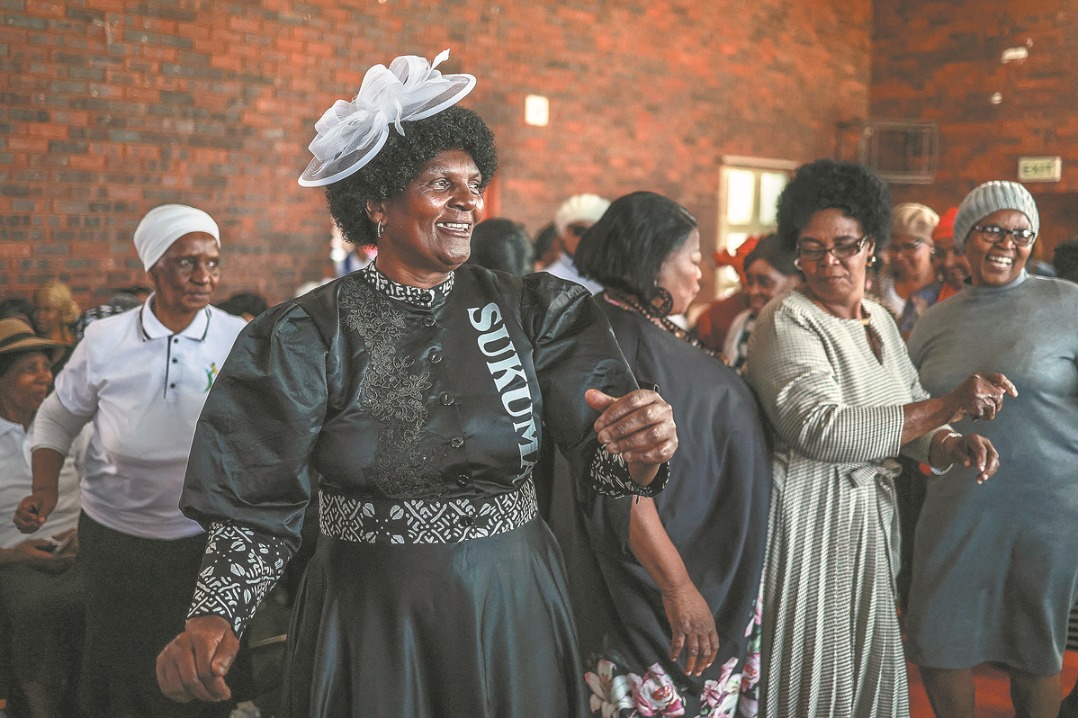South Korea sees record early voting

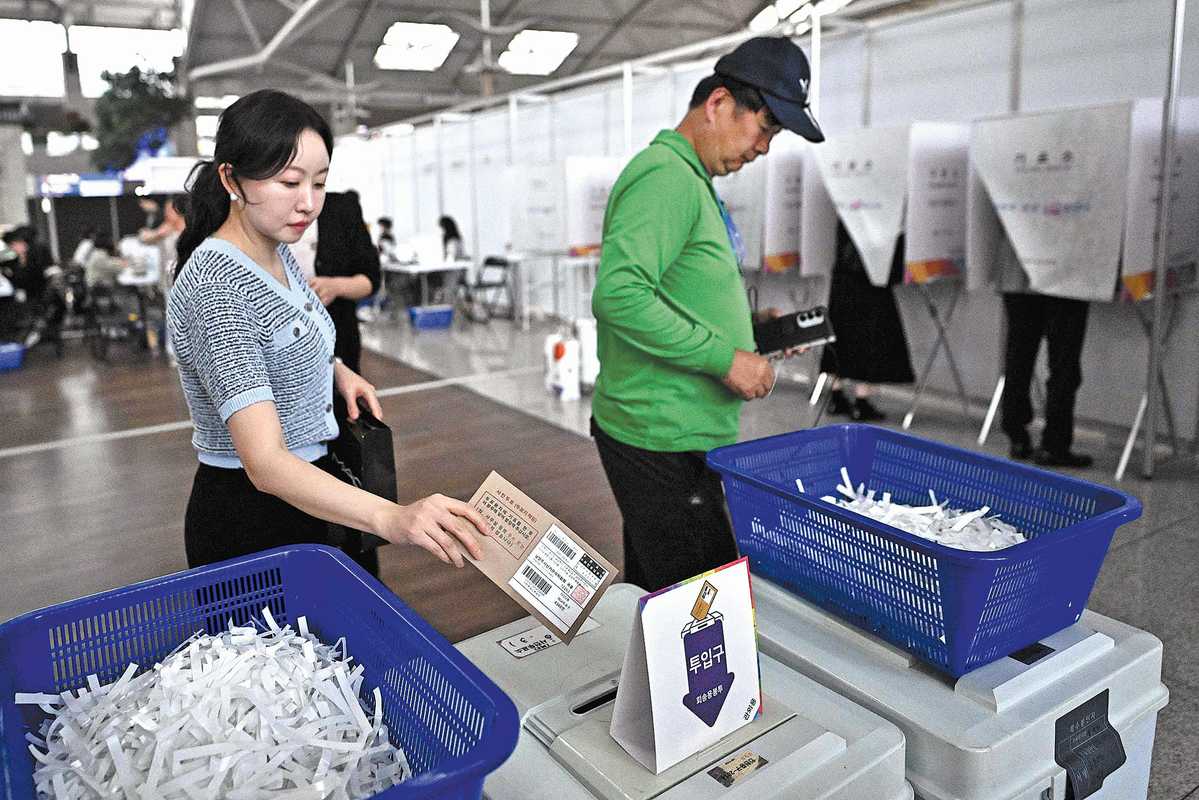
South Koreans waited in long lines on the first day of early voting on Thursday to elect a new president for the next five years following the impeachment of former president Yoon Suk-yeol, with voter turnout reaching a record high.
The early voting, which will last two days through Friday, was held ahead of the snap election on Tuesday. Those who are among the 44.39 million eligible voters can choose to cast their ballot in advance at 3,569 polling stations across the country.
The snap election was triggered by the impeachment on Yoon, who was supposed to serve until 2027, over his martial law decree last December.
The turnout of the first day of early voting reached 19.58 percent — the highest level recorded for the first day of early voting in any nationwide election since early voting was introduced in 2014 — according to Yonhap News Agency, citing data from South Korea's National Election Commission.
It was 2.01 percentage points higher than the 17.57 percent turnout recorded during the first day of early voting in the 2022 election.
Early voting plays an important role in South Korea's election system. In 2022, the early voting turnout was 36.9 percent, which accounted for nearly half of the final voting rate of 77.1 percent.
Major candidates, including the main opposition Democratic Party's Lee Jae-myung, Kim Moon-soo of the ruling People Power Party, and minor Reform Party's Lee Jun-seok, all cast their ballots on Thursday.
Former South Korean presidents Park Geun-hye and Moon Jae-in, as well as former prime minister Han Duck-soo, also cast their ballots, urging the public to vote.
"With institutional distrust and online disinformation, early voting becomes a barometer of public confidence," David Tizzard, a professor of Korean studies at Seoul Women's University and Hanyang University in South Korea, told China Daily.
Noting a record of nearly 80 percent of overseas voters casting their ballots during a six-day voting period last week, Tizzard said a higher turnout for early voting is likely, particularly if the younger generation sees it as a way to exert their influence outside traditional frameworks.
"South Korea's ability to carry out transparent early voting procedures will signal whether its citizens still trust the system, or if political theater has permanently clouded rational civic participation," said Tizzard.
Regaining image
"The world will also be watching, and South Korea will be keen to regain the image it worked so hard to create over the past few decades."
Opinion polls conducted from May 28 are prohibited from being published until the end of the main presidential voting.
In a survey released by pollster Gallup Korea before the prohibited period, Lee Jae-myung gained an approval rate of 49 percent, followed by Kim's 35 percent, and Lee Jun-seok's 11 percent.
The election day on June 3 has been designated as a temporary public holiday to allow voters to cast their ballots. The results are expected to be announced in the early hours of the next day, with the inauguration of the new president to follow.
In a separate survey by Gallup Korea, 86.8 percent of respondents said they would "definitely vote" in the upcoming election and 9.5 percent of the people said they would go to the polls if possible.
kelly@chinadailyapac.com
















